Reception
Welcome to our Reception classes – Lambanana and Liverbird! On this page you will find an overview of our learning each half term.
The P.E days will be on Tuesday and Thursday throughout the year.
Please ensure that the children wear their tracksuit or have their P.E kit in school on these days. Trainers can be worn as these are often more practical than plimsolls for outdoor activities.
Our phonics scheme is ‘Read, Write, Inc.’ Please click the link for more information. https://www.ruthmiskin.com/
Our maths scheme in Reception is White Rose Maths.
https://whiterosemaths.com/resources?year=early-years#filters
We also teach maths basic skills through NCETM maths mastery
https://www.ncetm.org.uk/teaching-for-mastery/
Can children please bring a coat to school everyday as the weather can be very unpredictable.
Mrs Cavanagh, Mr Thomas, Miss Rogan, Mrs Mushrow and Mrs Darby.
Curriculum
Learning outcomes for EYFS
to learn through play indoors and outdoors. We have a fantastic learning environment including the Classrooms, the Eco build Barn and the Outdoor Learning.
Our children enjoy learning how to make friends and develop their confidence. We have lots of opportunities to learn through active play, investigation, stories and visits.
We strive to ignite children’s curiosity and enthusiasm for learning, building their capacity to learn, form relationships and thrive.
As a team with our parents, families, children and our collaborative partners in our locality we endeavour to fulfil the principles of the Early Years of Unique child, Positive relationships, Enabling environments and high quality Learning and development. We focus on developing the Characteristics of Effective Learning in EYFS (see booklet in downloads section).
Expectations as a learner
Dress and undress independently. Manage own personal hygiene, including hand washing and blowing nose. Select and use resources independently. Stay on task when working in a small group. Describe what you have been doing. Tell someone how you are feeling. Know what to do if feeling worried or angry
Effective participators
Work as part of a group, taking turns and sharing fairly. Know when they are being fair. Ask questions of known adult. Show consideration for others’ feelings when working together.
Resourceful thinkers
Show confidence to initiate ideas, try new activities and speak in a familiar group. Persevere and stay involved (especially when solving a problem). Test out own ideas through provision, though not always able to explain their thinking. Willing to have a go at new experiences. Use imagination to make things. Show tenacity when working on a task; either independently or with others.
Reflective learners
Respond to significant experience, showing a range of suitable feelings. Express range of emotions fluently and appropriately. Show developing awareness of own needs, views and feelings and are sensitive to those of others. Consider the consequences of words and actions for self and others. Take feedback on board and suitably moderate actions and behaviours. Explain something they have enjoyed.
Independent enquirers
Work alone in an area of provision or on adult directed tasks for appropriate lengths of time. Maintain attention and concentrate. Sit quietly and listen attentively when appropriate, e.g. during story session, intro to tasks, talk by visitor etc. Ask questions using ‘what’, ‘when’ and ‘where’. Plan where they will work and what they will do. Give a simple reason for an action.
Team workers
Form good relationships with adults and peers. Understand that people have different needs, views, cultures and beliefs that need to be treated with respect. Understand that others can be expected to respect their needs, views, cultures and beliefs. Take into account the ideas of others. Take turns in speaking.
Expectations as a reader
- Demonstrate understanding of what has been read to them by retelling stories and narratives using their own words and recently introduced vocabulary.
- Anticipate (where appropriate) key events in stories.
- Use and understand recently introduced vocabulary during discussions about stories, nonfiction, rhymes and poems and during role play.
Word reading
- Say a sound for each letter in the alphabet and at least 10 digraphs.
- Read words consistent with their phonic knowledge by sound-blending.
- Read aloud simple sentences and books that are consistent with their phonic knowledge, including some common exception words.
Expectations as a writer
- Write recognisable letters, most of which are correctly formed.
- Spell words by identifying sounds in them and representing the sounds with a letter
or letters.
- Write simple phrases and sentences that can be read by others.
Expectations as a mathematician
Number
Have a deep understanding of number to 10, including the composition of each number.
Subitise (recognise quantities without counting) up to 5.
Automatically recall (without reference to rhymes, counting or other aids) number bonds up to 5 (including subtraction facts) and some number bonds to 10, including double facts.
Numerical patterns
Verbally count beyond 20, recognising the pattern of the counting system.
Compare quantities up to 10 in different contexts, recognising when one quantity is greater than, less than or the same as the other quantity.
Explore and represent patterns within numbers up to 10, including evens and odds, double facts and how quantities can be distributed equally.

